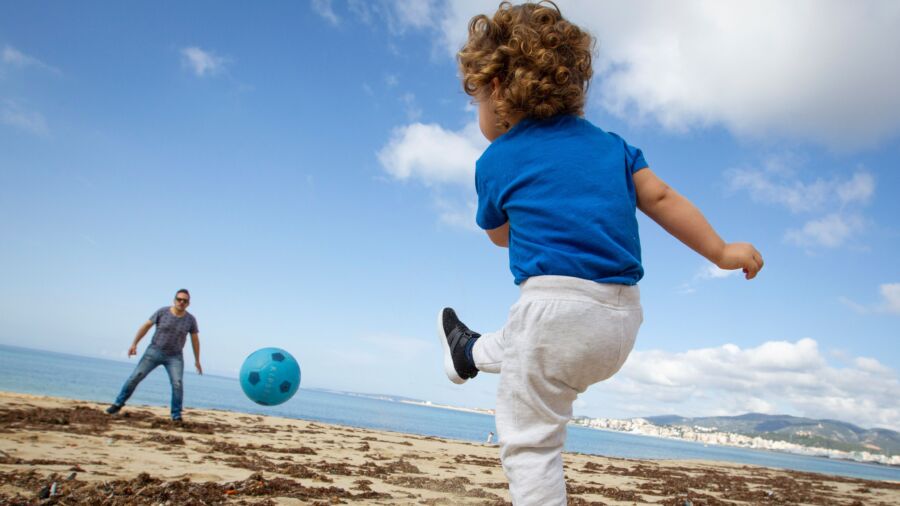Here’s some good news for parents. New research by the University of Calgary may help alleviate some concerns parents face when it comes to their children’s health and well-being.
The research specifically delved into the longer-term effects of certain types of childhood concussions. It involved gathering and compiling information from emergency room visits in children’s hospitals across both the United States and Canada.
The study investigated impacts to IQ scores due to mild pediatric concussion versus orthopedic injury over the course of three months. This allowed them to factor in other elements that could have affected IQ, such as demographic background and trauma.
The results showed that on average, mild childhood concussions have no negative long-term effects on the IQ or intelligence of children, and will lead to a full recovery in the majority of cases.
Concussions can range from mild to severe. They are caused by sudden impact to the head, which cause the brain to move inside the skull, resulting in a type of traumatic brain injury. Symptoms can include headaches, nausea and, in severe cases seizures as well as disrupted sleep and eating routines.
The research team compared the IQs of over 550 mildly concussed children, aged 8 to 16, to 300 adolescents who suffered orthopedic injuries, recruited in a separate peer-reviewed study. The comparison in IQ scores was subsequently published in Pediatrics magazine last month.
“Obviously, there’s been a lot of concern about the effects of concussion on children, and one of the biggest questions has been whether or not it affects a child’s overall intellectual functioning,” according to statement from Dr. Keith Yeates, PhD, a professor in Calgary’s Department of Psychology and senior author of the study.
Data was gathered from both Canadian and American children’s hospitals. The five Canadian facilities included Alberta Children’s Hospital in Calgary, as well as Vancouver, Edmonton, Ottawa, and Montreal (CHU Sainte-Justine). Parents submitted the IQ tests given to their children three months after their injury occurred.
American associates of the study compiled data from two children’s hospitals in Ohio, followed by IQ tests taken between three to 18 days after the injury occurred.
Dr. Yeates said that response to the data has varied, with different opinions in the medical community.
“It’s hard to collect big enough samples to confirm a negative finding. The absence of a difference in IQ after concussion is harder to prove than the presence of a difference,” he went on to say.
Nonetheless, based on the collaborative effort from both Canadian and U.S. associates, the authors say they were left with sufficient data, gathered from a wide range of demographics and clinical characteristics.
“We looked at socioeconomic status, patient sex, severity of injuries, concussion history, and whether there was a loss of consciousness at the time of injury. None of these factors made a difference,” Dr. Yeates said of the results. “Across the board, concussion was not associated with lower IQ.”
Another lead author of the study, Dr. Ashley Ware, who is a professor at Georgia State University, says that the findings serve as an important guideline for parents and should be widely distributed.
“Understandably, there’s been a lot of fear among parents when dealing with their children’s concussions. These new findings provide really good news, and we need to get the message to parents,” Dr. Ware said.
According to another co-author of the study Dr. Stephen Freedman, professor of pediatrics and emergency medicine at the Cumming School of Medicine, the results can provide some reassurance for parents and children following mild incidents.
“It’s something doctors can tell children who have sustained a concussion, and their parents, to help reduce their fears and concerns,” he said.
Moreover, the study’s comprehensive nature gives it more clout, as it is based on research from two separate cohorts that recorded effects almost immediately after suffering a concussion to the effects three months post injury.
“That makes our claim even stronger. We can demonstrate that, even in those first days and weeks after concussion when children do show symptoms such as pain and slow processing speed, there’s no hit to their IQs,” Dr. Ware added.
“Then it’s the same story three months out, when most children have recovered from their concussion symptoms. Thanks to this study, we can say that, consistently, we would not expect IQ to be diminished from when children are symptomatic to when they’ve recovered,” Dr. Ware said.


